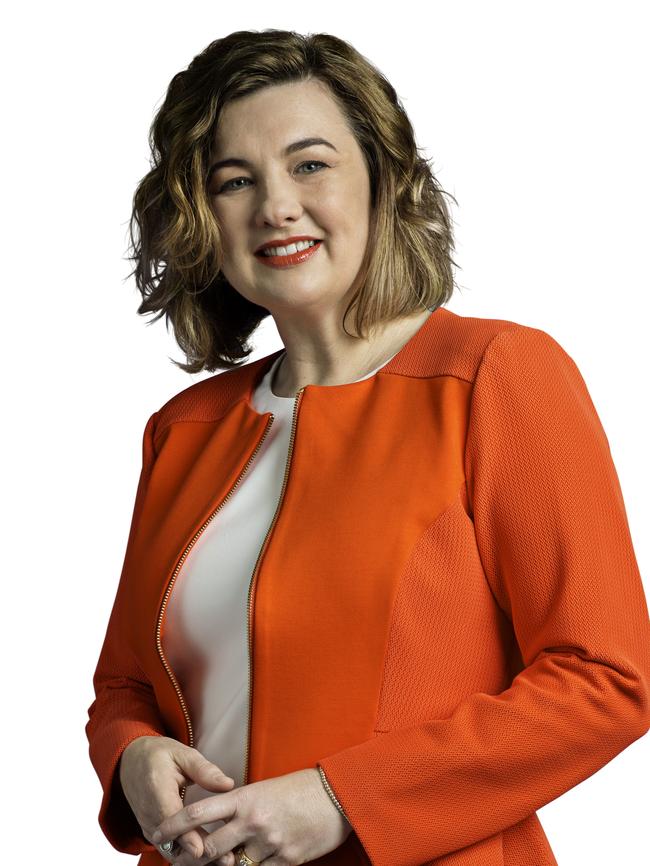Annette Sharp: Why it’s time to scrap the Logies
I’M calling it. At 4.45pm Sunday, April 3, 2016, the Logie Awards, for almost six decades the Australian television industry’s stellar showcase and popularity standard, died.
I’M calling it. At 4.45pm Sunday, April 3, 2016, the Logie Awards, for almost six decades the Australian television industry’s stellar showcase and popularity standard, died.
In that minute, the nominations for the forthcoming 58th Logie Awards were announced by the publication that has long been associated with the awards, TV Week.
In a year in which there has been a glut of television content due to shorter seasons and more platforms — digital, free-to-air, subscription and streaming services — the best candidate TV Week has turned up for a Gold Logie is a funny carpenter. Again.
The other five nominees in the Gold Logie category are virtually unknown to the traditional 50+ viewing audience who watch prime-time free-to-air commercial television. And that’s odd.
This means three things.
The team producing the Logies no longer know what the Logies represent, they have forgotten their responsibility to the industry, and the nomination process remains vulnerable to corruption by self-interested parties.
On its worst day, the Gold Logie is an award that goes to the biggest star. Someone whose image can sell magazines and soap, and, importantly, a person affiliated with a TV program regularly in the top 10 shows. A Lisa McCune, Georgie Parker, Ray Martin or Bert Newton.
On its best day, the Gold Logie recognises or unearths
a great talent — Asher Keddie, Rebecca Gibney, Garry McDonald or Kylie Minogue.
Perhaps distorted by sponsor TV Week’s desire to boost sales of its poor-selling magazine to a younger market (circulation figures at December 2015: 130,051),
I would argue not one of the six in contention for the coveted Gold Logie would imagine themselves to be THE BEST on Australian television.

Meanwhile, given the relative youthfulness of the nominees, we are expected to believe young people, who increasingly download television and watch it on portable devices, are now voting in increasing numbers for the Logies. I don’t buy it.
The nominee who most faithfully satisfies the traditional voting criteria is Scott Cam, host of The Block on the Nine Network — a program which regularly finished in the top 10 shows.
The Project’s Carrie Bickmore, who has been nominated a remarkable 11 times since her TV career began 10 years ago, comes close to meeting the criteria, although her program usually lags towards the bottom of the top 20 most-watched shows.
Her Project offsider Waleed Aly’s nomination sparked outrage on social media, where some of the criticism was interpreted as racism or being politically correct.
Unlike Aly, SBS newsreader and nominee Lee Lin Chin has spent 24 years plying her trade as a newsreader. Her inclusion this year (a first for SBS in the category since the broadcaster launched 36 years ago) says more of Chin’s cult appeal on social media thanks to the SBS show The Feed and a cameo in a popular lamb ad than it does her regular gig as weekend newsreader.
Even more unfathomable is that the network that dominates television ratings in this country, the Seven Network, has been entirely overlooked in the category.
It’s hard to believe Gibney, a genuine star who starred in both the drama series Winter and miniseries Peter Allen: Not The Boy Next Door in 2015 — and Wanted in 2016 — has been overlooked.
Also overlooked are Mandy McElhinney from Nine’s House Of Hancock, Erik Thomson in Seven’s 800 Words, the casts of Foxtel dramas A Place To Call Home, Deadline Gallipoli, Wentworth and Banished, and two of the most popular shows on television — My Kitchen Rules and MasterChef.
The surprises in the nominations continued with Grant Denyer, included for Ten Network’s Family Feud and The Great Australian Spelling Bee, and Essie Davis for ABC-TV’s Miss Fisher’s Murder Mysteries.
The process of popular voting has been flawed and famously corruptible for decades and now, with confusion presiding about the influence of social media — where a majority of users merely react to trends — the Logies are now fatally compromising our star-making machine.
Enough.
It’s time to scrap it, enlist some peers, and start over again.


